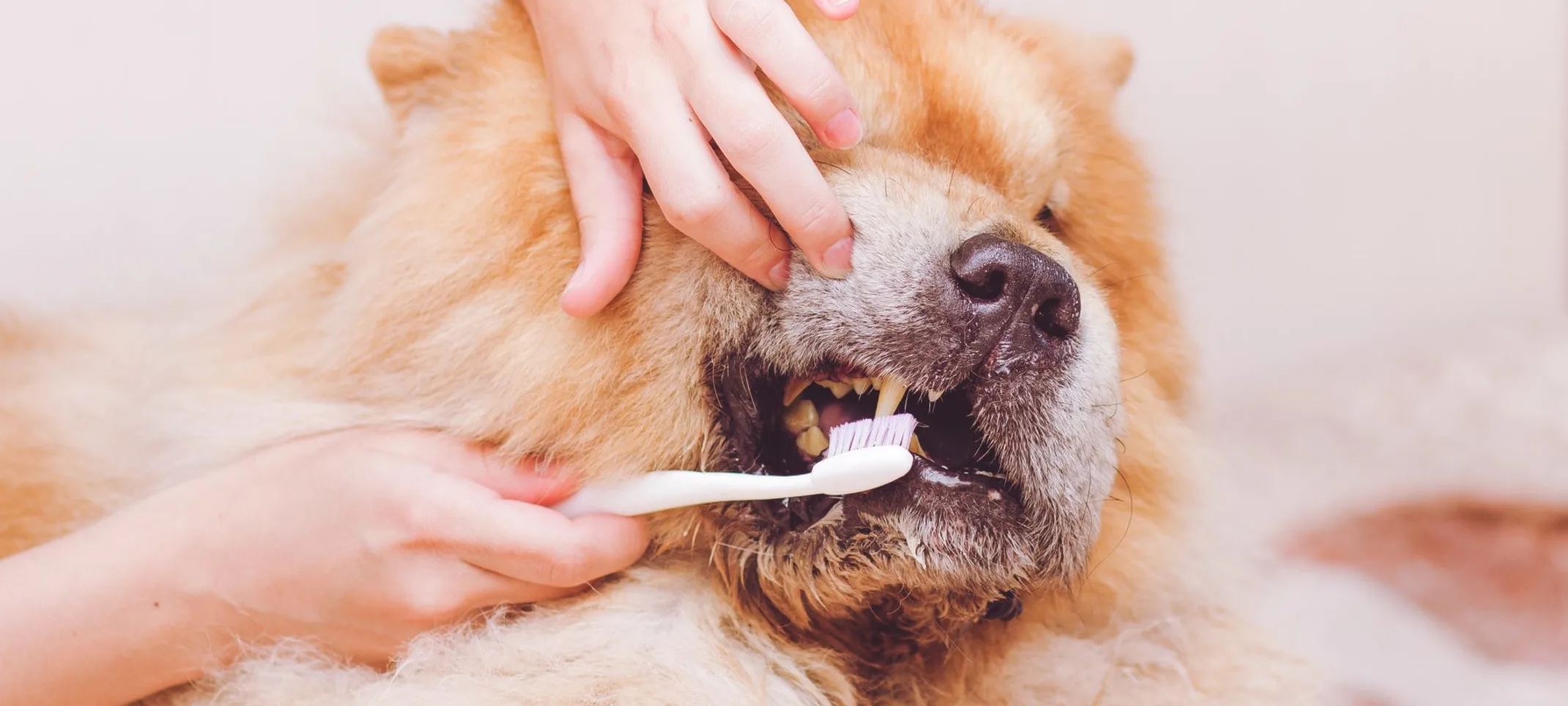Brightwood Animal Hospital
Dentistry
Annual dental exams and cleanings are recommended to protect your pet from many health problems and help them maintain a healthy and clean mouth.

🦷 Now Offering Standard Dental Plan >
Overview
Studies show that 50% of all dogs and cats have some form of periodontal disease. That number jumps to 80% in pets that are 3 years of age or older. If left untreated, periodontal disease can cause infection, pain, and tooth loss over time. It can also lead to serious health problems like microscopic changes in the heart, liver, and kidneys. Because of this, an annual veterinary dental healthcare examination is recommended for all pets.
Why do pets need dental care?
Many health problems start in the mouth. Plaque, tartar, periodontal disease, and infected teeth serve as a source of inflammation and infection for the rest of the body.
Dental disease is one of the most common problems seen in dogs and cats. It can cause drooling, reluctance to eat, swelling, bad breath, redness of the gums, loose teeth and tooth discoloration.
When should I seek dental care for my pet?
Dental issues and dental related diseases can easily be prevented by visiting your veterinarian regularly for dental examinations and cleanings. A comprehensive approach is taken to dental care including dental health assessment, treatment, and prevention.
How does it work?
Teeth Exams, Cleaning and Polishing
Dog and cat dental cleanings are very similar to human dental cleanings, except anesthesia is required to properly and safely examine and clean the teeth. After the cleaning, your veterinarian will perform a thorough oral exam and check for signs of disease such as gum loss, root exposure, or pockets around the root.
Also similar to human dentistry, dental radiographs (x-rays) of your pet are done as needed. This allows your veterinarian to be able to evaluate the roots of your pet's teeth as well as any disease or abnormalities that are located below the gum line and not visible on examination alone.
Tooth Extractions
Every effort is made to save teeth your veterinarian feels have a chance to be successfully treated. In many circumstances, however, periodontal disease is so advanced that treatment without extraction is unsuccessful. Only teeth determined by your veterinarian to be beyond saving will be extracted.
Minor Oral Surgery
Many teeth require oral surgery to safely remove each individual root. Veterinarians have extensive training and experience to perform these procedures properly. Pain medications are administered in clinic and also prescribed for the post-procedure comfort of your pet.
